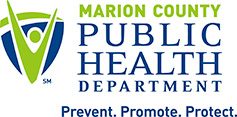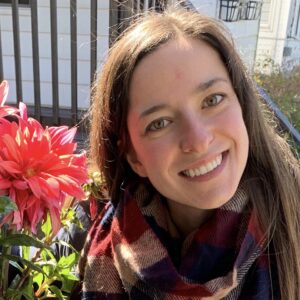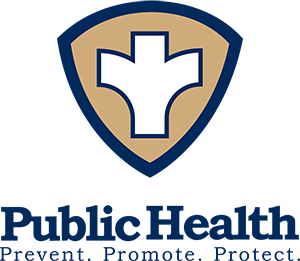What is the role of the Resource Central team?
-
-
The team uses a nationally recognized, academic detailing (AD) approach of interactive outreach that connects clinicians to trained professionals through brief, one-on-one sessions to assess the individual provider’s needs and practice.
-
The Resource Connection Team can then offer tailored, evidence-based clinical recommendations and resources to address provider needs in a wide range of clinical topics.
-
What is academic detailing?
Academic detailing (AD):
-
-
Focuses on clinical topics where there are gaps between evidence-based guidelines and typical practice patterns.
-
Provides developed educational materials that synthesize the findings of the best available studies into key messages and clear directives for busy practicing clinicians.
-
Use these educational materials as the basis of presentations and discussions between academic detailers and physicians.
-
The goal of AD is to produce better outcomes for patients.
-
Academic detailing is not:
-
-
Sales, AD does not represent companies
-
Commercially Biased nor do they have bias toward a particular drug or approach to care.
-
Why should I participate?
-
-
Distills current literature and resources into quick to read information, which saves you time
-
Improves patient health outcomes
-
Proven method of providing evidence-based information in an effective and impactful way
-
Meet Our Resource Connection Team
Mandy Billman, MPH
Overdose Data to Action Project Coordinator
MCPHD Resource Connection Team efforts:
Did you know there were over 4,000 suspected drug overdose emergency department visits at Marion County hospitals in 2022? Each non-fatal overdose event represents an opportunity to intervene and provide harm reduction and treatment support to the patient. Key messages covered during virtual or in-person academic detailing sessions will vary depending on the healthcare provider’s needs.
What topics will be covered during educational sessions?
- Harm reduction
- Prescribing medications for opioid use disorder (MOUD)
- SUD Stigma reduction
Expectations for participants:
- Participate in 2-3 detailing sessions (~30 minutes per session)
- Complete one brief, post-visit feedback form
These efforts are being funded by the Overdose Data to Action: Limiting Overdose Through Collaborative Actions in Localities (OD2A: LOCAL) grant that was awarded the Marion County Public Health Department.
To get involved reach out via email or complete the interest survey here: https://redcap.link/ADinterest
Marion County’s first academic detailing project was funded by Centers for Disease Control and Prevention’s Overdose Data to Action (OD2A) Grant. MCPHD’s academic detailing team worked closely with the National Resource Center for Academic Detailing (NaRCAD) for intensive training and for support in developing educational tools to use with primary care providers. The overall goal of this detailing campaign was to work with providers to increase the likelihood of patient screening for SUD and mental health needs and to connect individuals who screen positive to the community resources and referrals.
Promotional and educational materials:
Dr. Virginia Caine, Director & Chief Medical Officer of MCPHD, call to action letter for health care providers about academic detailing (Dr. Caine Letter Mailer).
This academic detailing campaign ran from September 2021 to June 2022.
What topics will be covered during educational sessions?
- Screening for Substance Use Disorder (SUD)
- Reducing SUD Stigma
- Motivational Interviewing
- 7 Myths of Medications for Opioid Use Disorder (MOUD)
- Prescribing MOUD
- Drug Overdose Data & Resources
- IU Health Outpatient Addiction Treatment Resources for patients & providers
- Overview of MCPHD’s SUD Academic Detailing Program
- Dr. Virginia Caine’s call to action letter for health care providers about academic detailing
- Detailers completed 44 detailing sessions held with healthcare providers
- Connected with 12 pediatric providers (11 physicians and 1 nurse practitioner)
- Community Resource Guide (last edited Feb 2023)
MCPHD is working on a variety of initiatives to help people with substance use disorders and their loved ones. Learn more below:
-
-
Recovery Assist Platform, is a directory of services for persons with substance use disorder in Marion County and surrounding areas. You can search for a service provider by location, type of services or population served such as age, gender, special circumstances or payment accepted.
-
You’re Worth It anti-stigma campaign and resources to get help: https://marionhealth.org/worthit/
-
Naloxone training, testing services, substance use disorder case management, and more Substance Use Outreach Services (marionhealth.org) or call 317-221-4618.
-
Safe Syringe Access and Support can help provide resources to folks who are actively using substances: Naloxone, harm reduction supplies, safer drug use practices, wound care education, immunizations, access to health insurance coverage, HIV & hepatitis C rapid screening, and peer support. Questions: 317-221-2117, Peer Support: 317-671-1630 or visit: https://marionhealth.org/safesyringe/
-
If you have questions or comments, please contact Mandy Billman at abillman@marionhealth.org.




